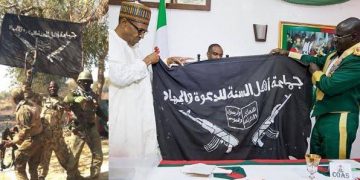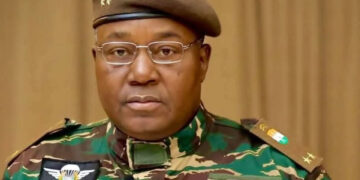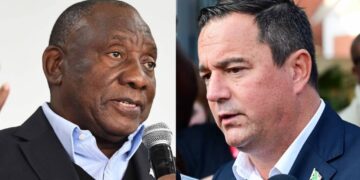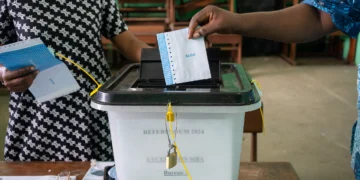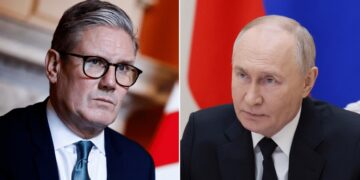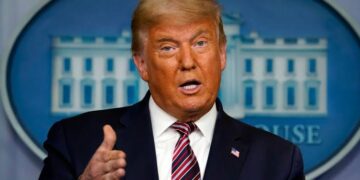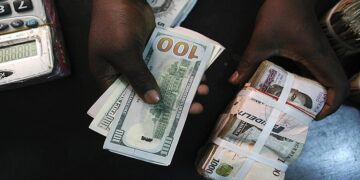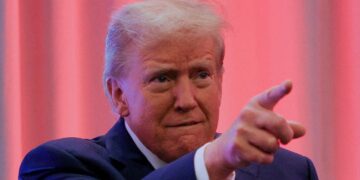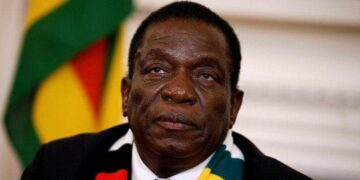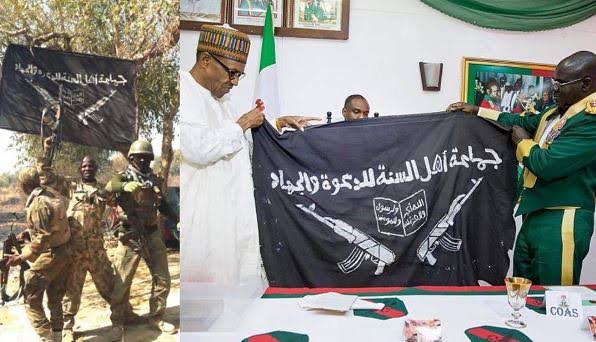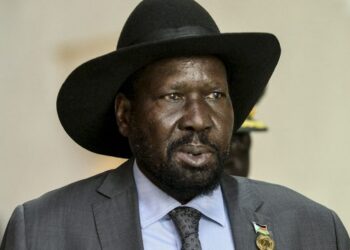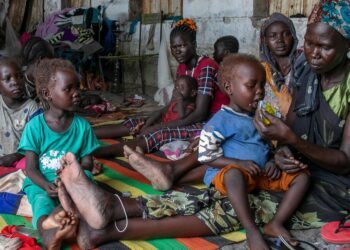By Olusegun Adeniyi
Disturbing videos are making the rounds on WhatsApp. As Boko Haram insurgents invade a northern town with their armoured vehicles, they are being hailed by young boys and girls who act as though they are watching a movie. The videos also come with a message that sums up the state of our country and the danger the future portends: “Children taking terrorists attacks on their community as sports. They watch, laugh and cheer, they even take selfies. This is tragically abnormal. The crisis has been with some of them since their birth, so they see it as a norm. This will not go away in a short time because a generation of Boko Haram children is born and raised. It will be difficult to disabuse their minds from acts of terrorism because they have come to see it as a way of life. May God deliver such generation and us all.”
With kidnappers, separatists, bandits, robbers and other criminal elements let loose and many of our politicians blinded by their obsession with 2023 that is not guaranteed, Boko Haram insurgents are not only getting more and more emboldened; they are also gradually expanding their territorial landscape. That the insurgents understand the power of symbolism can be glimpsed from their strategic attempt to either capture or significantly disrupt livelihoods in Geidam, the hometown of the acting Inspector-General of the Police, Baba Alkali. The Yobe State community has in the past few weeks witnessed several attacks, forcing many of the residents to flee. It is the same message insurgents sent in 2014 when they overran Vimtim, the hometown of the then Chief of Defence Staff, late Air Marshal Alex Badeh. Such is the growing audacity of Boko Haram that a recent memo from the Federal Airports Authority of Nigeria (FAAN) warned of a planned attack on the Kaduna, Maiduguri, Sokoto, Kano, Abuja, and Lagos airports.
There seems to be tacit admission by the federal government that Boko Haram is neither ‘technically defeated’ nor has its capacity been significantly ‘degraded’ as we were led to believe. Politicians who were vociferous in making those claims in the past have suddenly become deaf and dumb. The insurgents, backed by other terror affiliates, are now a mighty army that is not content taking over the North-east. After making a serious play for the North-west, they are establishing a strong presence in the North-central with Niger State as their operational base. On Monday, Governor Abubakar Sani Bello again read from the book of lamentations, following the sacking of nearly 5,000 villagers from their ancestral homes in Shiroro and Munya local government areas. Boko Haram insurgents, according to the Governor, are not only annexing territory, they are also ‘confiscating’ the wives of villagers. “I just heard that they have placed their flags at Kaure, meaning they have taken over the territory.” For effect, Bello warned of the danger of inaction, especially for those who may be under the illusion of safety in the Federal Capital Territory. “Sambisa is several kilometers from Abuja, but Kaure is just two hours’ drive from Abuja. So, nobody is safe anymore, not even those in Abuja,” the governor said.
Since criminal cartels heightened their orgy of violence across the country, many videos have surfaced online of things President Muhammadu Buhari, Alhaji Lai Mohammed and other chieftains of the ruling All Progressives Congress (APC) were saying when seeking to wrest power from President Goodluck Jonathan before the 2015 general election. When persons in unauthorized possession of lethal weapons levy war on the state, there cannot be a better definition for treason. But in their desperation for power, many of those who now call the shots rationalized the madness. During that period, they could not draw a line between sectarian rascality and respect for the lives and freedom of others in a multi-ethnic and multi-religious state. The same insurgents they romanticized have now practically rendered the country prostate under them.
However, the responsibility to retrieve Nigeria from the claws of these criminal elements belongs to everyone. And time seems to be running out. That some people played politics with security in the past is no justification to wish ill on our country. This is the time to rally around the government and support our fighting troops and security agencies. We must situate the Boko Haram violence within the broader view of the challenge to our common humanity. We must avoid the temptation to hide behind the cynical Yoruba idiom: “Ki lo kan Olorun nibi ejo san aya; omo eranko lo n da eranko lara!” (Why should God be bothered that a snake bites a monkey when it is a case of one animal fighting another?). When the heavens fall, as another Yoruba adage teaches, there will be no escape for anyone.
The greater responsibility of course lies with the federal government. On 30th December 2016, President Buhari received the flag of Boko Haram retrieved from the Sambisa Forest by then Theatre Commander, Operation Lafiya Dole (and current Chief of Defence Staff), Lt. General Lucky Irabor. At the ceremony, then Chief of Army Staff, Lt General Tukur Buratai made much show of the flag which he gleefully presented to the president, beaming before the camera, almost as if his army had defeated the insurgents. Now, the same Boko Haram has acquired so much capacity that it is moving beyond the North-east to hoist its bloody flag in the North-central zone of the country.
In January 2019, I visited the Internally Displaced Persons (IDP) camp in Dalori at the outskirts of Maiduguri, Borno State. As I moved quietly within the camp, I heard many heartrending stories. A particular one centred around what happened at Gwange village where insurgents killed a popular Imam. “We heard that they left instructions that the Imam should not be buried but that made no sense. The next day, we all gathered for the burial. Suddenly, we started hearing gunshots and we abandoned the corpse and ran for our lives. A few hours later, Boko Haram men came back to the village to kill the Imam who was leading the prayer at the burial ground.”
I concluded my intervention with the warning by Mr Fola Adeola which suffices today: “If we continue to ignore the reality that we are a country on the precipice, it is almost certain that we will fall over. It can get worse, and there are examples all around us. Yemen, Sudan, Libya, the DRC; these are all countries with people who also pray to ‘the living God’. Between the opioid optimism of the religious, and the parochial preoccupation with the nuclear that numbs the elite, we are stumbling towards Armageddon. And the thing about Armageddon is it engulfs all: the poor, the rich, the innocent and the guilty.”
To compound our challenge, reports from the economic front are equally frightening. On Monday, the Nigeria National Petroleum Corporation (NNPC) wrote the Office of the Accountant General of the Federation on the projected remittance to the Federation Account for the months of April to July. The average landing cost of Premium Motor Spirit (PMS) for the month of March 2021, according to the NNPC, “was N184 per litre as against the subsisting ex-coastal price of N128 per litre, which has remained constant notwithstanding the changes in the macroeconomics variables affecting petroleum products pricing.” This, NNPC says, has resulted in a huge value shortfall of about N112 billion monthly from February and “will translate to zero remittance to the Federation Account from NNPC in the month of May 2021. This is to ensure the continuous supply of petroleum products.” The long and short of NNPC ‘dogo turenchi’ is that by the time the 22nd anniversary of the current democratic dispensation is being celebrated at the end of May, there will be nothing to share in Abuja for the three tiers of government!
But Boko Haram represents the biggest existential threat which is why the import of what the Governor of Niger State said should not be lost on the federal government. The insurgents are gradually pushing Nigeria in the direction of the Democratic Republic of Congo and Ethiopia where the entire military command and control once collapsed. What followed in those countries was not pleasant: Soldiers shed their uniforms and fled in mufti. Heaps of weapons were dumped everywhere. Pot-bellied ministers trekked several kilometres across the border. The machinery of state was reduced to no more than abandoned piles of files and worthless pieces of paper. Mengitsu Haile Mariam boarded a flight to Zimbabwe. Mobutu Sese Seko was forced to flee to Morocco. Both left their countries in tatters. May that never be our portion in Nigeria!
Mike Adenuga at 68
Globacom Chairman, Dr Mike Adenuga Jr is 68 today. Anybody familiar with the story of Nigeria’s telecoms industry cannot but salute his doggedness even when very few gave him a chance at the beginning of his adventure. In an environment that has become suffocating for entrepreneurship, where industry is no longer encouraged by government’s penchant to create bubble jobs that can only worsen our economic problems in the long run, we need to interrogate the value of men like Adenuga. Especially at a time like this.
I have known Adenuga for more than two decades. Yet I cannot recall a time I could directly reach him. Certainly not as THISDAY editor. Nor as presidential spokesman. Or even as THISDAY editorial board chairman. The last time I had any direct contact with him was in June 2010. That was at the Bloemfontein stadium during the World Cup in South Africa which I attended as a member of the presidential task force. Then on 18th January last year (2020), I received a call from a regular Glo number which I didn’t have in my contacts. So I didn’t pick. The person then sent a text message: ‘My Bros, MA Jr called.’ Despite a strong feeling as to who the caller could be, I was not prepared for anybody to scam me so early in a new year so I ignored the message. When on 27th February 2020, I received a similar message, I decided to call the number. The moment Adenuga picked, I couldn’t mistake his distinctive voice in the roaring laughter. What followed was a long conversation after which he said we should continue to keep in touch. In the course of one of our interactions, he specifically thanked me for the support I gave him when he was fighting for a telecoms license two decades ago. I found that quite touching.
During the GSM license bid round in 2001, there was an attempt to muscle out Adenuga. The then NCC Executive Vice Chairman, Dr Ernest Ndukwe was very fair and transparent in the manner he handled the exercise. But powerful forces within the political establishment were bent on frustrating Adenuga from securing a telecoms license. Persuaded that we need Nigerian players in the sector, I argued in a few columns that since Adenuga had expressed interest, he ought to receive a license.
In April 2002, at the instance of his late spokesman, Mr Tunji Oseni, I had a breakfast audience with then President Olusegun Obasanjo in Ota during Easter. Three of us were invited: Bashorun Akin Osuntokun, Dr Reuben Abati and myself. Only Osuntokun and myself turned up for the breakfast session that lasted about two hours. As we ate, President Obasanjo asked me, “Segun, please tell me. How much is Adenuga paying you and other journalists for the media campaign you people are doing for him on this telecom license?”
The conversation that followed the attack was interesting. Although Obasanjo gave the official version of the account as to why Adenuga missed out on the licensing round, it appeared to me that there might be a personal issue between them. A dogged fighter, Adenuga refused to give up. He eventually secured the license in August 2003. And he changed the game with per second billing, which the more established companies had said was impossible but were then forced to adopt.
Despite Adenuga’s initial disadvantage of having to operate in the same space with MTN and Econet (now 9Mobile) with their head-starts in Nigeria and elsewhere as well as their experience in the sector, he has built a solid company that is a clear leader in Nigeria. It also has footprints outside the country. Though he has a foothold in the oil sector and banking, it is in the telecoms sector (where he was almost denied) that Adenuga’s company flies the flag of our country and should be a source of pride to all Nigerians. The massive support that Glo has given to our domestic sports and the entertainment industry is the kind that can only be offered by someone with a true commitment to their country.
I know from my experience in government that Nigerian big men like to obtain these special licenses and permits in order to sell them. Many prefer to be commission agents and middle men who add little or no value to the economy. That is why we have so many idle billionaires with no real source of livelihood. And as I have also pointed out in the past, most of them employ no more than drivers, cooks, stewards etc.—domestic workers who minister to their personal indulgence and that of their pampered families. With Glo, Adenuga took a big gamble that has paid off for him. In the process, he has also taught us numerous lessons about the depth of our economy and the resilience of our people.
As a nation, Nigeria has never been more challenged than it is today. In whichever area one looks, the statistics are terribly frightening. More worrisome is that the majority of our young people are roaming the streets with no clear future. In the process, many are taking up arms and becoming bandits, kidnappers and robbers. What ails us therefore requires strategic thinking on how we can empower these people to be productively engaged. That will happen if we create an environment for the private sector and come up with smart regulations and necessary incentives.
Tradermoni, Marketmoni, Farmermoni, Special Public Works Programme in the 774 local governments may have their use, especially in a society where there is no safety net for the poor, but that will not bring the much needed prosperity for our country or lift the majority of Nigerians from poverty. The surest path for that is through the private sector. By stepping up to be bold and daring, Adenuga has been able to restore our national pride in the telecoms sector. Even more importantly, what his example has also shown, as we have seen with the way our nationals are appointed into critical positions abroad, is that we have game-changers in all aspects of our national life. We just need the government to unleash their creative energies.
As he clocks 68 today, I wish Dr Mike Adenuga Jr happy birthday, long life and good health!
The Platform!
The Platform, a signature programme inspired by the Senior Pastor of Covenant Christian Centre, ‘Poju Oyemade, to x-ray Nigerian challenges and proffer solutions, holds on Saturday in Lagos. The theme is ‘Is Devolution of Powers the solution to Nigeria’s problems?” While Vice President Yemi Osinbajo, Mr Osita Chidoka as well as Governors Nyesom Wike, Nasir el-Rufai and Kayode Fayemi will be engaged virtually, there are four main speakers: Bishop Mathew Hassan Kukah, Dr Charles Omole, Mr Olisa Agbakoba, SAN and myself. I hope useful lessons can be learnt from the engagements (usually live on Channels television) as we seek solutions to the myriad of problems confronting the nation.
You can follow me on my Twitter handle, @Olusegunverdict and on www.olusegunadeniyi.com
